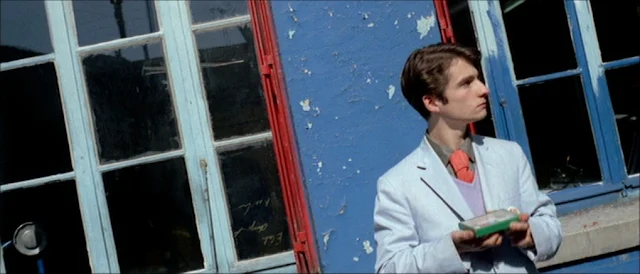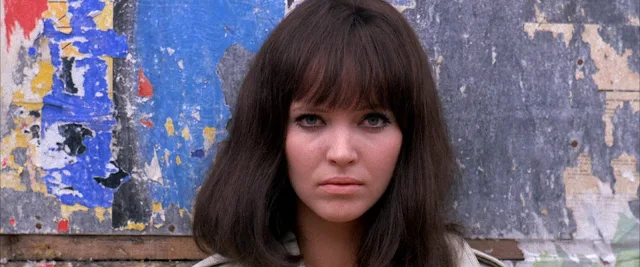Cast: Anna Karina, László Szabó, Jean-Pierre Léaud, Marianne Faithfull, Yves Afonso. Screenplay: Jean-Luc Godard, based on a novel by Donald Westlake. Cinematography: Raoul Coutard. Film editing: Françoise Collin, Agnès Guillemot.
Jean-Luc Godard’s Made in U.S.A. wasn’t released in the titular country until 2009 because Godard failed to secure the rights to the Donald E. Westlake novel on which it was based, although it’s unlikely that even Westlake would recognize the film’s relationship to the novel he published under the pseudonym Richard Stark. It’s an allusive (and some would say elusive) ramble through all manner of detective fiction and film noir, often wearing its sources on its sleeve, with references to fictional characters, movie actors (e.g., Richard Widmark, whose name László Szabó bears in the film), filmmakers (e.g. Otto Preminger), and screenwriters (e.g. Ben Hecht). But it’s also, as the character played by Jean-Pierre Léaud and bearing the name of the director Don Siegel says, “a political movie. Just like a Disney movie, only with blood.” Anna Karina’s detective Paula Nelson is searching for the killer of one Richard Politzer, except that we never hear the last name in the film: It’s always blocked out by some off-screen sound like a car horn. The reason seems to be that Godard is alluding to the Marxist philosopher Georges Politzer, a figure of some controversy in the hyperpolitical France of the 1960s. Most of the movie’s literary, cinematic, political, and historical allusions can be ignored, if you just want to let the bright colors of Raoul Coutard’s cinematography dazzle you and the foolery of the film’s parody and nonsense scenes wash over you. (If you want more, there’s a very good short film about the allusions included with the Criterion Collection edition of the movie, which is also currently available on the Criterion Channel.)
















